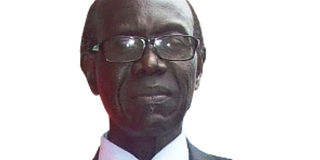On the challenge of building unity in diversity – Part I

On October 17, I had the honour and privilege to be on a panel of eminent speakers at the 5th Apolo Milton Obote Memorial Lecture held in Kampala. The keynote speaker at the well-attended event was Prof PLO Lumumba of Kenya who delivered a powerful and eloquent lecture to commemorate Dr Obote, founding president of the Uganda Peoples Congress (UPC).
He praised Obote for his commitment to East African integration and African unity. At the first OAU Summit held in May 1963, Kwame Nkrumah and Obote were the only African leaders who supported establishment of immediate African continental government.
The main discussant of the keynote address was Prof Mwambutsya Ndebesa of Makerere University, after whom I was invited to present a paper on the challenge of promoting unity in diversity in UPC. Below is an abridged version of my presentation:
Uganda Peoples Congress exists and operates in the context and environment of the sovereign State of Uganda whose long term agenda, purpose and vision includes the forging of one nation out of many ethnic groups; nation in this regard means the people of Uganda as a whole.
UPC is a political party of and for Ugandans. The important and burning question facing UPC today, namely, the need to forge party unity must, in my opinion, be considered and addressed in the light of what party unity is intended for. In other words, what is the purpose and goal of promoting and building unity within UPC? Without a clearly defined purpose, objective and goal, unity is not useful and will not last, but if the purpose, objective and goal of party unity are clearly defined such unity will last for a long time.
UPC has for 57 years struggled against all odds to achieve unity in diversity both within the party and in Uganda. On March 9, 1960, two fledgling political parties, a faction of Uganda National Congress (UNC) led by Milton Obote and Uganda Peoples Union (UPU) led by William Rwetsiba merged to form UPC and the new party elected Obote as its founding party president.
National unity
Since 1960, UPC championed the cause of national unity. UPC was right from the beginning a party of all Ugandans, irrespective of their ethnic, religious and racial divide. UPC was united in the rich diversity of Uganda by ideas which held the party together.
The first and primary objective of UPC in 1960 was “to struggle relentlessly, by all constitutional means, for the immediate attainment of complete independence”. After that goal was achieved on October 9, 1962, the primary objective of UPC was changed and became: “to build the Republic of Uganda as one country with one people, one Parliament and one government.”
During the campaigns for the 1980 general elections, the Obote told Ugandans at a rally held at Makerere University that UPC was a party of ideas and not a party of a particular region or religion. He repeated this theme at several subsequent events and rallies. UPC has remained a national party of ideas to this day. One lesson which Ugandans have learnt over the last 30 years is the fact that ideas matter.
Without the power or might of ideas a party can easily lose direction and degenerate into a political organisation whose sole objective and goal is what Ugandans sarcastically call, “eating”. Members of such a party are united by their love for money and property; they grab or plunder public and private land and property with impunity.
For such types, politics is business and political power is used shamelessly for personal gain; power for the hyenas is primarily a means for the primitive accumulation of wealth. I am sure our esteemed readers know such reactionary political organisations which are misleading wananchi in many African countries.
Ambassador Acemah is a political scientist and retired career diplomat.




